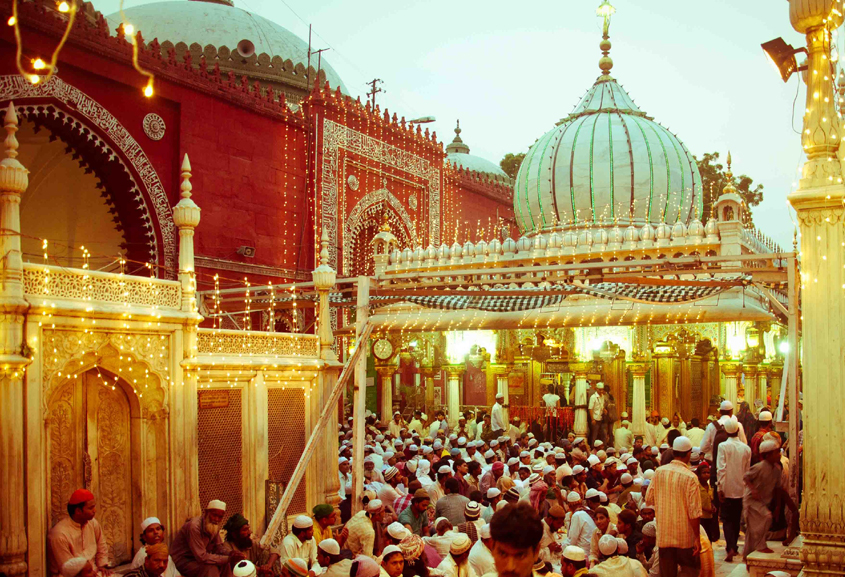In line with the Supreme Court’s verdict on Haji Ali dargah lifting the ban on women’s entry inside the tomb, Trupti Desai has urged the Nizamuddin dargah trustees in Delhi to proactively allow women to enter the inside chamber of the tomb and set an example for other dargahs in the country.
Desai, a gender equality activist and the founder of the Bhumata Brigade, a Mumbai-based social activist organisation, said, “We request religious shrines to practice gender equality and open their doors for men and women alike. We have no intention to intervene in religious practices. But discriminating against one gender on the basis of religion is not acceptable. I have not been to the Nizzamuddin dargah, but I have heard that it does not allow women to enter even though it is a renowned Sufi shrine.” Desai’s Bhumata Brigade had played an instrumental role in breaking the 400-year-old tradition of not letting women enter the Shani Shingnapur Temple, Maharashtra, and the inner sanctum of the Haji Ali dargah after she led a large protest under the aegis of Haji Ali Sab Ke Liye (Haji Ali for all).
When a senior functionary of the Nizamuddin dargah was approached, he declined to comment on the matter and said, “The managing committee of the dargah has the right to take the decision on the issue.”
The Nizami family is the official caretaker of the Nizamuddin dargah.
Another senior member of the family who does not hold any office-for-profit in the dargah at present and has served the dargah as a peerzada said, “There is a religious and a logistical reason behind why women are not allowed inside the Nizamuddin dargah. The Shariat does not allow women to visit graves. In the case of Nizamuddin, the saint never married and the popular saying is that when alive, he had asked women to restrain from visiting his grave after his death.
There are shrines of saints where women are allowed and there are some where women are not allowed. Dargahs of saints who had experienced conjugal life often do not restrict women’s entry. For the Nizamuddin dargah, the other issue is lack of space inside the sanctum. Footfall has increased manifold since the time the dargah was established. It would require special arrangements if women are allowed inside. This should not be made an issue. Understanding dargahs and their tradition would serve a better purpose.”
Sadia Dehlvi, a sufi scholar and the author of the book Sufism: the Heart of Islam, said, “For the dargah trustees, this is not a gender issue. They see it as a way to protect their traditions that have a history behind them. For them, it is a 700-year-old tradition to allow only men near the tomb; to make these changes suddenly or by force will not be welcomed by them. But traditions can be reviewed with the changing times. There are dargahs that belong to the same Sufi order, but some allow women and some do not. So this is not even about outside intervention. Dargahs can evolve and move out of stringent boundaries. A dargah is naturally friendly towards women and children. I don’t think this should be made an issue for gender equality.”

